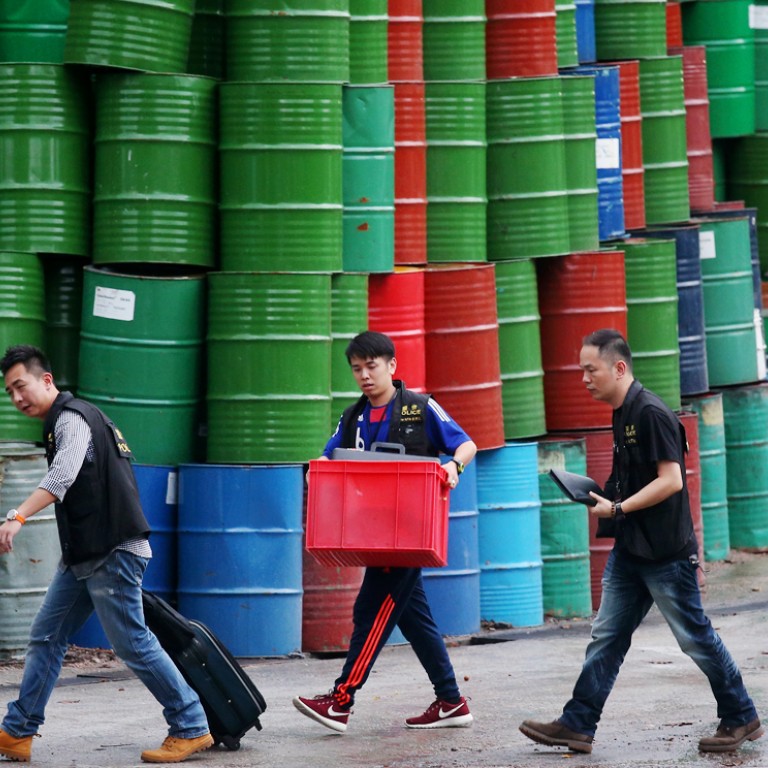
'Gutter oil' scandal shows why we must keep track of the food chain
It has taken just 10 days since the "gutter oil" scandal broke in Taiwan for what started out as mainly someone else's problem to become very much ours.
It has taken just 10 days since the "gutter oil" scandal broke in Taiwan for what started out as mainly someone else's problem to become very much ours. The full extent of this city's exposure has finally been revealed in a list released by the Food and Environmental Hygiene Department of some 300 bakeries, restaurants, retailers and distributors involved. They are affected by a ban on the sale, supply and importation of all lard and lard products made in the last six months by Chang Guann, the Taiwanese company at the centre of the scandal, and on all food products made with cooking oil supplied by the company.
Meanwhile, police are investigating Hong Kong trading company Globalway for allegedly exporting industrial lard oil labelled for human consumption to Chang Guann, which is said to have blended it with "gutter oil" - made from recycled food waste - and sold it as edible.
The government is to be commended for publishing the list, but faces criticism that it acted too late. Officials argue that they did not want to cause unnecessary panic and that a full check on importers and suppliers, and manufacturing and retail outlets takes time. It is also arguable, however, that the example of the Taiwanese authorities, who acted more swiftly to compile a list of products and outlets affected - also available on the government's website - better serves the interests of a community that depends on a proactive food safety regime for public health.
The belated release may be welcome, but there remains a need for officials to explain more clearly the dangers of contaminated products and the remaining risk. There is also a need for thorough checks on safe disposal and to see that use of contaminated oil is discontinued. The government cannot physically ensure compliance with our food safety regime when goods come in. But evidence of how easily holes have been punched in our defences, and how a top hotel is as vulnerable as a small retailer, reinforce our call for an effective mechanism for tracing origin and distribution, and informing consumers.

